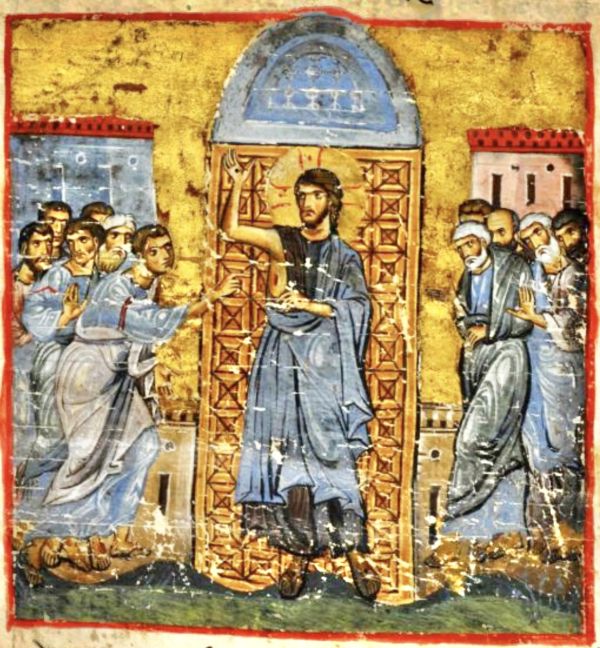On the first day of the week, Jesus came to the disciples while they were gathered behind closed doors.
He entrusted them with the mission of proclaiming the Good News, 'breathing' on them so that they might receive the Holy Spirit.
Thomas, who was absent, found it hard to believe and was rebuked by Jesus for demanding to see and touch, without accepting the testimony of the other disciples.
Yet Thomas sought a first-hand experience of the Risen One.
The Poor Man of Assisi and his brothers grew in faith through their active encounter with the Lord in the poverty they lived, in the solitude and prayer they experienced in their daily lives.
Faith in Jesus, who died on the cross as a criminal to assure us of eternal life, overflowed in the bare existence of Francis and his brothers.
It was certainly a divine gift, but also the fruit of a non-formal relationship that developed along the path they had taken.
It is worth remembering what the Sources attest:
"[Francis] taught them to praise God in all creatures; to honour priests with special veneration; to believe firmly and confess openly the truth of the faith [...]
They observed in everything the teachings of their holy father, and as soon as they saw a church or a cross from afar, they turned towards it, prostrated themselves humbly on the ground and prayed in the manner they had been taught" (FF 1069).
Chiara herself, in her Letter to Ermentrude of Bruges, regarding the life of Fede, suggests:
"Remain, therefore, my dearest, faithful until death to Him to whom you have bound yourself forever. And you will certainly be crowned by Him with the crown of life.
The time of toil here below is short, but the reward is eternal.
Do not be dazzled by the splendours of the world that pass like a shadow.
Do not be surprised by the empty images of this deceitful world; close your ears to the whispers of hell and strongly resist its temptations.
Bear adversity willingly, and do not let pride swell your heart in prosperous times; the former call you back to your faith, the latter demand it (FF 2914).
The experience of God in their lives had been so strong, incisive and merciful that they could speak as no one had ever done before.
‘Thomas answered him and said, «The Lord of mine and the God of mine!»’ (Jn 20:28)
3 July, St Thomas the Apostle (Jn 20:24-29)












